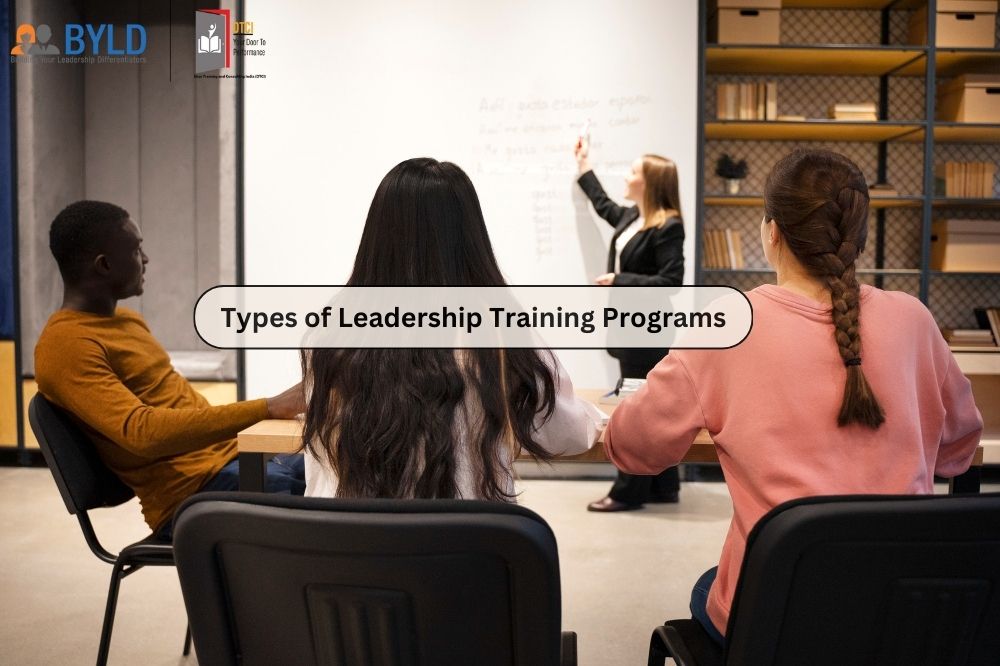INTRODUCTION
In the dynamic tapestry of the business world, leadership development programs stand as a pivotal force driving success, fostering innovation, and sustaining excellence. It serves as the guiding force that steers organizations through the complexities of a rapidly evolving landscape. Recognizing the paramount importance of effective leadership, the concept of leadership development has emerged as a transformative journey, offering individuals a pathway to acquire the essential skills and knowledge requisite for navigating the multifaceted challenges inherent in leadership roles.
This comprehensive exploration has shed light on the nuanced realm of leadership development, where the term “Leadership Development Programs” resonates with purpose and significance. These structured initiatives, encapsulated in the phrase, serve as instrumental conduits for cultivating leaders who transcend the ordinary. They go beyond the mere accumulation of technical know-how, extending into the realms of emotional intelligence and strategic acumen essential for impactful leadership in the modern business landscape.
As we navigate this multifaceted terrain, it becomes evident that Leadership Development Programs are not mere academic endeavors; they embody a commitment to fostering excellence and innovation within individuals. They represent intentional pathways for continuous growth, emphasizing the dynamic nature of leadership. Just as the business landscape evolves, so must the leaders within it, and it is through these programs that individuals embark on a journey of perpetual self-improvement.
In the tapestry of professional growth, Leadership Development Programs serve as the thread weaving together individuals sharing the same aspiration for growth and development. The phrase becomes a beacon guiding professionals towards intentional growth, emphasizing that effective leadership is not a static achievement but an ongoing, ever-evolving journey. It encapsulates the ethos of deliberate and continuous development, signifying the belief that leadership excellence is not a destination but a perpetual expedition towards becoming exemplary leaders.
WHAT IS LEADERSHIP DEVELOPMENT?
In unraveling the intricacies of Leadership Development, we discover a strategic and intentional process crafted to elevate individuals’ skills, knowledge, and attributes, positioning them for coming to terms with the challenges and responsibilities of leadership roles. Beyond the confines of traditional training, Leadership Development is a dynamic journey that stretches into the realms of long-term personal and professional growth. At its core, Leadership Development Programs emerge as the architect of this transformative process, serving as the crucible where potential leaders are identified, nurtured, and sculpted into the architects of the future.
Diving deeper into the fabric of Leadership Development Programs, we discern their multifaceted role in shaping the leaders of tomorrow. These programs, the true linchpins of leadership evolution, extend beyond conventional training modules. They become immersive experiences, meticulously tailored to provide individuals with the tools, experiences, and insights necessary for not just effective but exemplary leadership.
As we navigate the landscape of Leadership Development, the term “Types of Leadership Training Programs” emerges as a beacon, directing our attention to the diverse array of approaches available. Each type, whether executive leadership programs, team leadership training, or online leadership courses, contributes to the mosaic of leadership development. These programs epitomize the ethos of continuous learning, emphasizing that effective leadership is not a static achievement but an ongoing, evolving process.
WHAT ARE LEADERSHIP DEVELOPMENT PROGRAMS?
In unraveling the intricacies of Leadership Development Programs, we find them to be meticulously crafted and structured initiatives, purposefully designed to act as catalysts for the growth and development of leaders within the organizational framework. These programs, aptly coined as crucibles of leadership evolution, transcend conventional training paradigms by encompassing a rich array of activities. From immersive training sessions and personalized mentorship to experiential learning and targeted coaching, Leadership Development Programs emerge as comprehensive ecosystems that nurture leaders at every echelon.
Diving into the granular details of Leadership Development Programs, we discern their adaptive nature, tailored to intricately address the multifaceted needs and challenges encountered by leaders across various tiers of organizational hierarchy. As we navigate the landscape of these programs, the recurring theme of “Types of Leadership Training Programs” comes to the forefront, highlighting the diverse methodologies employed to sculpt leaders of distinct calibers.
These structured initiatives, collectively forming the umbrella term of Leadership Development Programs, represent more than a set of organized activities. They become immersive experiences, carefully curated to instill not just theoretical knowledge but practical wisdom. Leadership Development Programs, through the lens of their inherent diversity, underscore the understanding that leadership excellence is a nuanced journey, and as such, it requires tailored approaches that resonate with individuals at different stages of their leadership trajectory.
REASONS WHY LEADERSHIP DEVELOPMENT PROGRAMS MATTERS
• STRATEGIC ALIGNMENT:
Leadership development ensures that leaders align their strategies with the overall goals and vision of the organization, fostering a cohesive and forward-thinking approach. Beyond the realms of skill enhancement, these programs act as strategic enablers, ensuring that leaders align their strategies intricately with the overarching goals and vision of the organization. This alignment not only fosters a cohesive and forward-thinking approach but also cultivates a culture of shared purpose and collective achievement.
• SUCCESSION PLANNING:
The significance of leadership development programs extends beyond immediate needs, delving into the realm of succession planning. By investing in these programs, organizations strategically cultivate a pipeline of capable individuals ready to step into critical leadership roles when the need arises. The phrase “Types of Leadership Training Programs” resonates here, indicating the diverse approaches employed to identify, nurture, and prepare the ground for the next generation of leaders. This foresight ensures continuity and stability during leadership transitions, safeguarding the organizational journey.
• ENHANCED PERFORMANCE:
Leadership development is not merely a proactive measure; it’s a catalyst for enhanced performance at both the team and organizational levels. The phrase “Types of Leadership Training Programs” emphasizes the diverse methodologies employed, ranging from executive leadership programs to team leadership training, each contributing uniquely to the overall landscape. Well-developed leaders, equipped with a multifaceted skill set, become driving forces behind innovation, productivity, and the overarching success of the organization.
• EMPLOYEE ENGAGEMENT:
One of the subtle yet profound impacts of leadership development is its influence on employee engagement. Effective leaders, honed through a variety of leadership training programs build a positive work environment. Here, the phrase “Types of Leadership Training Programs” suggests the varied approaches taken to foster leadership qualities. This positive environment, cultivated through effective leadership, becomes a breeding ground for employee satisfaction, engagement, and retention.
• ADAPTABILITY:
In the ever-evolving business landscape, adaptability is a prized trait. Leadership development programs, aptly encapsulated by the term “Types of Leadership Training Programs,” serve as the training grounds for equipping individuals with the skills to navigate change and uncertainty. The diversity in these programs ensures a holistic approach to building adaptive leaders capable of steering organizations through the challenges posed by dynamic business landscapes.
• TALENT ATTRACTION:
Organizations with robust leadership development programs possess a magnetic appeal for top talent. The phrase “Types of Leadership Training Programs” suggests a spectrum of opportunities for professional growth and mentorship. Prospective employees, driven by a desire for continuous development, are drawn to organizations that prioritize leadership development. This not only enhances the organization’s talent pool but also contributes to a culture of innovation and excellence.
10 DIFFERENT TYPES OF LEADERSHIP TRAINING PROGRAMS
-
Executive Leadership Programs:
Tailored for senior executives, these programs focus on strategic thinking, decision-making, and advanced leadership skills. Examples include Harvard Business School’s Advanced Management Program and Stanford Graduate School of Business’s Executive Program in Leadership.
- Leadership and Management Courses:
Designed for mid-level managers, these courses cover a range of topics, including team dynamics, conflict resolution, and strategic decision-making. Notable examples include the Wharton School’s Leadership and Management Certificate and MIT Sloan’s Management and Leadership Certificate.
- Team Leadership Training:
Centered around building effective team leaders, these programs focus on communication, collaboration, and conflict resolution within teams. The Center for Creative Leadership’s Team Leadership program is a prominent example.
- Leadership Development Workshops:
Short, intensive workshops that provide targeted leadership development. These can cover specific skills such as communication, emotional intelligence, or decision-making. Organizations like Dale Carnegie Training offer workshops on leadership skills.
- Online Leadership Courses:
With the rise of digital learning, many institutions offer online leadership courses, providing flexibility for professionals. The University of Michigan’s Leadership Essentials and Coursera’s Leadership and Influence course are popular options.
- Leadership Coaching Programs:
Personalized coaching programs that focus on individual leadership development. The International Coach Federation (ICF) provides accreditation for coaches, ensuring a high standard of coaching expertise.
- In-House Leadership Development Programs:
Customized programs developed by organizations for their internal talent pool. These programs align with the company’s specific values, goals, and leadership competencies.
- Women in Leadership Programs:
Designed to address the specific challenges that surface for women in leadership roles, these programs aim to empower and support women leaders. The Women’s Leadership Institute and Catalyst are organizations offering such programs.
- Leadership Retreats:
Immersive experiences that combine leadership development with team-building activities in a relaxed, offsite setting. These retreats provide opportunities for reflection and strategic planning.
- Leadership Seminars and Conferences:
Events that bring together leaders from various industries to share insights, trends, and best practices. The Global Leadership Summit and TED Talks often feature leadership-related content.
CONCLUSION
In wrapping up our exploration, it becomes evident that leadership development is not a one-size-fits-all endeavor; rather, it unfolds as a nuanced journey embraced by both organizations and individuals alike, all in the pursuit of nurturing truly effective leaders. The dynamic landscape of leadership development programs serves as a testament to the recognition that leadership is not static; it’s an evolving skill set that requires continuous honing.
Throughout this intricate journey, individuals find themselves at various junctures, each demanding a tailored approach to leadership enhancement. From the apex of organizational leadership in executive programs to the dynamic digital realm of online courses, and the personalized guidance of coaching, the options are diverse. The immersive experiences offered by retreats add a unique flavor to this expedition, emphasizing the importance of self-reflection and strategic planning.
Leadership and Development Consultants, dealing with professional growth, stand as the linchpin connecting aspiring leaders with the knowledge, skills, and experiences vital for success. They epitomize the commitment to fostering not just competent but exemplary leaders who can navigate the complexities of the contemporary business landscape.
As organizations and individuals traverse the landscape of leadership development, the resonance of the term “Leadership Development Programs” echoes with purpose. It encapsulates the essence of structured initiatives aimed at cultivating leaders who transcend the ordinary, leaders equipped not just with technical know-how but with the emotional intelligence and strategic acumen necessary for impactful leadership. The phrase becomes a beacon guiding leaders through the myriad choices, emphasizing the importance of intentional growth and the pursuit of excellence.
In essence, Leadership Development Programs encapsulate the ethos of leadership development itself – a deliberate, ongoing process designed to empower individuals, foster innovation, and elevate organizations to new heights. Thus, as we conclude this exploration, let us recognize that leadership development is not merely a professional endeavor; it is a commitment to continuous evolution, a testament to the belief that effective leadership is not a destination but an ever-unfolding journey.






